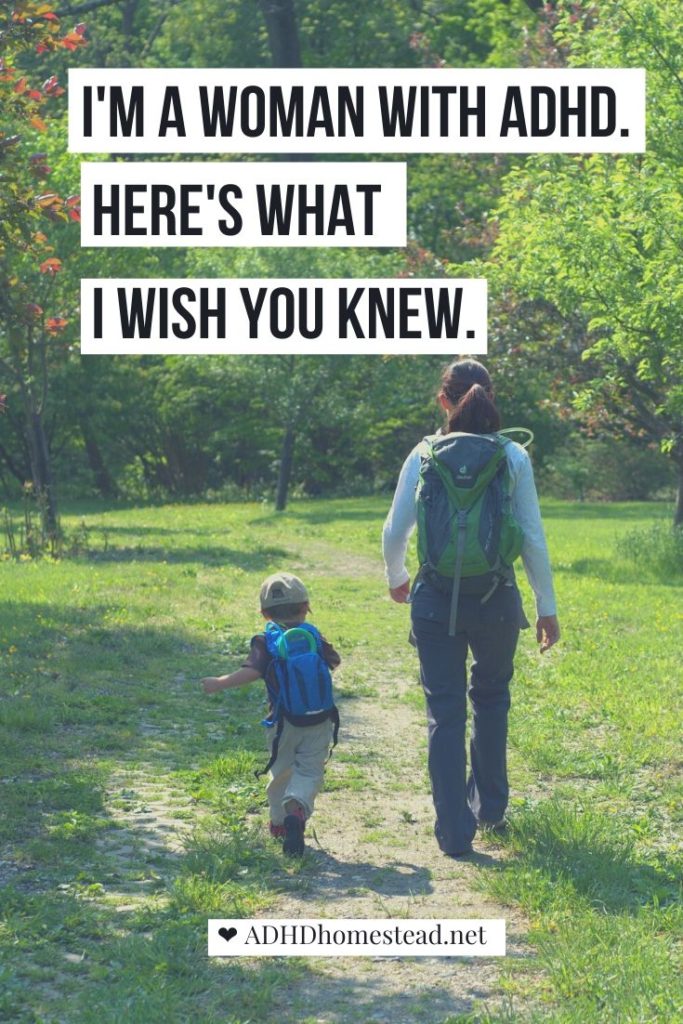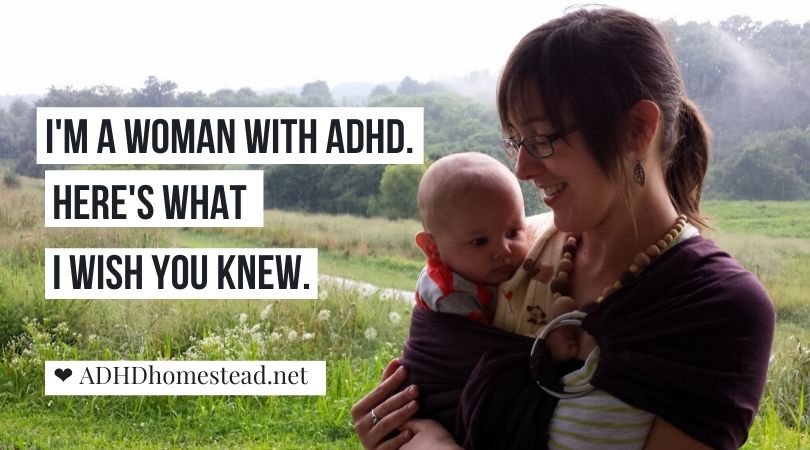When I first set out to write Order from Chaos, I wanted to help people like me get more out of their lives. Not coincidentally, a lot of people like me read this blog. While this certainly doesn’t describe all of us, many of us:
- Are women
- Have ADHD (often diagnosed in adulthood)
- Are the person in charge of keeping our household up and running
These three points both support and contradict each other. As women, we’re expected to be the glue that holds everything together for our families. ADHD makes this especially difficult to do. And we’re less likely to receive a childhood diagnosis because, surprise, many girls’ ADHD doesn’t fit the (boy) stereotype for the disorder. That means we may reach adulthood without the tools we need to fulfill the expectations dumped on our doorstep. And we may spend years wondering what’s wrong with us.
If you’re living this life, too, I want you to know I see you. And I know the people supporting you on this journey may not always understand. The people closest to me haven’t always understood, and sometimes they’ve said some very hurtful things. But there are a few big truths I wish everyone knew as we try to figure this whole life-with-ADHD thing out.

1. We aren’t dumb, selfish, or lazy
We get it. We understand. Demolishing an entire room in the house and leaving the project unfinished for five years is unacceptable. Paying bills is important. You feel rejected and unloved when we don’t pay attention to you.
ADHD doesn’t make us incapable of understanding the concept of responsibilities and priorities. It does cripple our ability to turn our best intents into reliable action. We care about you, we mean well, and we want to do right by you. But we keep messing up, and no amount of buckling down and trying harder seems to help.
To that end…
2. We carry a tremendous burden of shame and guilt
It sucks to be an intelligent adult who feels incapable of anything but self-sabotage. Most of us have been blamed, shamed, and labeled since childhood — especially if our ADHD went undiagnosed or wasn’t managed well. We’re short on self-worth. Every victory is tainted with anxiety about the failure that must be lurking around the corner.
Some of us aren’t self-aware or emotionally mature enough to see how shame, guilt, and low self-esteem affect our behavior. Unable to face the truth, these folks will engage in blame-shifting or other abusive behaviors.
Before you open your mouth to say a word, we already know what we did wrong. We’ve already said all the negative things about ourselves that you’re going to say, and then some. We already feel shame, guilt, and anger. While it might give you a feeling of release to add to the pile, those words will only push us further from positive change.
3. We do care about you
It’s true. Even after standing you up and leaving you alone at a restaurant while we stayed late at work, we still care about you. A lot.
It’s that whole bit about intent not leading to the correct actions. We know it’s hard to believe, but our behavior doesn’t always reflect what’s in our hearts. That’s why all the shame and guilt.
4. And yet, we can’t change through brute force
We know that “everyone struggles with this stuff” and “you just have to do it.” But trying harder and powering through doesn’t work for us. That’s what it means to have ADHD.
If you love someone with ADHD, you need to know about the neurotransmitter dopamine. A lot of people call it the “pleasure and reward” chemical, but there’s more to the story. Dopamine provides the spark of motivation — the innate feeling that our actions in the present will result in a tangible consequence in the future.
Guess whose brain has less available dopamine? You guessed it: someone with ADHD. We know, in our logical brains, that the car needs gas to run. We know we should put gas in it or we might get stuck on the side of the road. But it doesn’t feel real. There’s something missing: that spark that would make most people stop at the gas station on the way home from work. Until, of course, the fuel light’s been on for days and we fly into a panic.
This is our neurochemistry. When we think about it, our behavior doesn’t make sense to us, either. But we can’t pump more dopamine into our brains with willpower alone. We can’t just “try harder.” Telling us trying harder will solve our problems only makes us feel more shame, guilt, and self-loathing.
5. We need to find solutions that work for our brains
Maybe you can force yourself to use an app or a filing system or a calendar you don’t like because, hey, everyone needs to keep their stuff organized. It’s not supposed to be fun. Well, we can’t. If we try to force ourselves to use a system that works against our brains, we’re going to crash and burn.
That means some of us might never, ever put a piece of paper into a filing cabinet. But we might be happy to use an open rack that holds hanging files. Don’t assume we want to leave our stuff lying all over the house. Maybe we just haven’t found the right way to store it — like in a basket instead of a drawer.
If you’ve tried to get us to use your favorite tools to get our lives in order and we’ve failed miserably every time, maybe you’re asking us to use the wrong tools. It’s not that we hate the idea of being organized, or don’t think it’s important. Our brains just work differently, and we need to find a system that goes with the grain, not against it.
In other words, we need to get to know ourselves, and figure out the best way to bring our actions in line with our true intentions. We might need someone to hold our hand, at least at first. And yes, we know sometimes our behavior makes no sense, and we know it looks like we don’t understand cause and effect any better than your average toddler. Believe it or not, we’re doing the very best we can with what we have right now. We want to do better. We just haven’t found the right set of tools yet.
Want to know more about how ADHD affects the brain & what that means for building a peaceful, organized, and satisfying life? Check out my book Order from Chaos..
This post was updated to add narration on July 31, 2020.
Hey there! Are you enjoying The ADHD Homestead?
Here's the thing: I don't like ads. I don't want to sell your attention to an advertising service run by the world's biggest data mining company. I also value my integrity and my readers' trust above all, which means I accept very few sponsorships/partnerships.
So I'm asking for your support directly. For the cost of one cup of coffee, you can help keep this site unbiased and ad-free.
Below you will find two buttons. The first lets you join our crew of Patreon pals and pledge monthly support for my work. Patrons also have access to my Audioblogs podcast. The second takes you to a simple donation page to pledge one-time or recurring support for The ADHD Homestead, no frills, no strings. Do whichever feels best for you!

